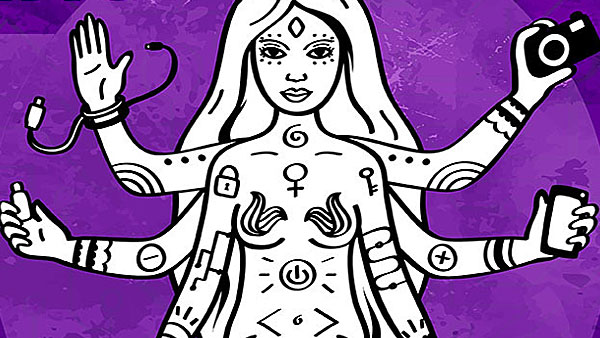| ’Cyber-Secure’ Women in Mexico Stand Up to Vicious Digital Attacks Martha Pskowski - PRI’s The World | |
| go to original August 28, 2017 |
|

In July, The New York Times reported that the Mexican government uses Pegasus spyware technology to monitor activists and journalists. While state-sponsored hacking grabs headlines, Ciberseguras (“Cyber-secure women”) collective, has found that women face online abuse on many fronts.
“Women who defend rural territories here in Mexico get threats from the narcos,” Cornelio says. “The government monitors people digitally. And lastly, we see a lot of women who are targeted by their former partners.”
Members of SocialTIC and representatives of the Take Back the Tech campaign began meeting in 2013 and launched Ciberseguras as a blog to share resources to combat online abuse. While the problem was increasingly common, many women didn’t know where to turn for help.
“Just like other forms of violence against women, the victims are judged,” Cornelio says.
Even though millions of Mexicans still lack internet access, the country boasts 50 million social network users. There is no national data on the prevalence of online harassment of women, but high-profile cases in the past three years have put feminist organizations on alert. The phenomenon is so common, women have coined a term for the attackers: machitrolls.
Often, women who break taboos and speak out against physical violence are attacked online. In one such case, four men attacked Sen. Ana Guevara, an Olympic athlete who was riding her motorcycle outside Mexico City in December 2016. When photographs of her injuries circulated online, trolls and bots began tweeting them with hashtags like #SiNoTeGolpeaNoTeAma ("If he doesn’t beat you, he doesn’t love you").
In March 2016, US journalist Andrea Noel tweeted about an instance of street harassment she faced in Mexico City. When the post went viral, Noel was inundated with violent threats, some of which included her physical location.
Sometimes those online threats become grisly assaults. María del Rosario Fuentes Rubio received numerous threats when she ran an anonymous Twitter account reporting on crime in the border city of Reynosa, Tamaulipas. In October 2014, cartel members discovered her identity and murdered her.
Mexico is one of Twitter’s top 10 markets, with 10 million registered users, but Amnesty International has called Twitter’s policing of spam and abuse for Spanish-language users “patchy at best.”
Mexico has a cybercrime unit within its National Security Commission, but online harassment is only one part of its broad mandate. Because both the government and Twitter and Facebook administrators have fallen short of protecting those most vulnerable to online abuse, Cornelio says women experiencing harassment are more likely to turn to their own contacts.
Read the rest at PRI's The World
Related: Latin American Women in Tech Are Fighting Back Against ‘Machista’ Culture (The Next Web)
We invite you to add your charity or supporting organizations' news stories and coming events to PVAngels so we can share them with the world. Do it now!
Celebrate a Healthy Lifestyle
 From activities like hiking, swimming, bike riding and yoga, to restaurants offering healthy menus, Vallarta-Nayarit is the ideal place to continue - or start - your healthy lifestyle routine.
From activities like hiking, swimming, bike riding and yoga, to restaurants offering healthy menus, Vallarta-Nayarit is the ideal place to continue - or start - your healthy lifestyle routine.